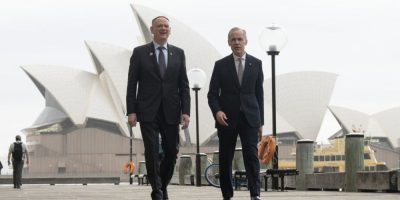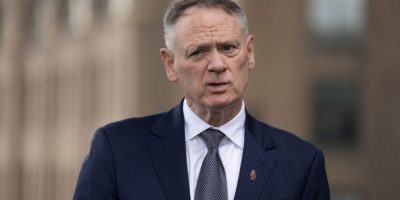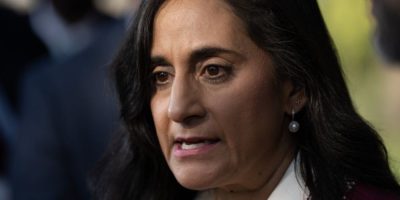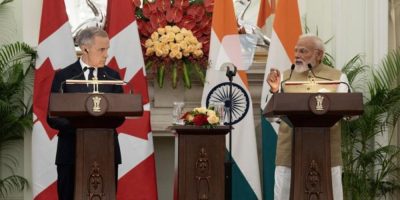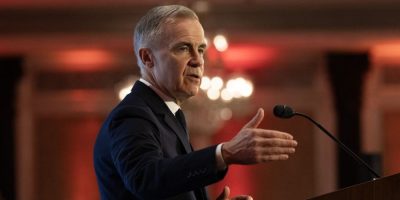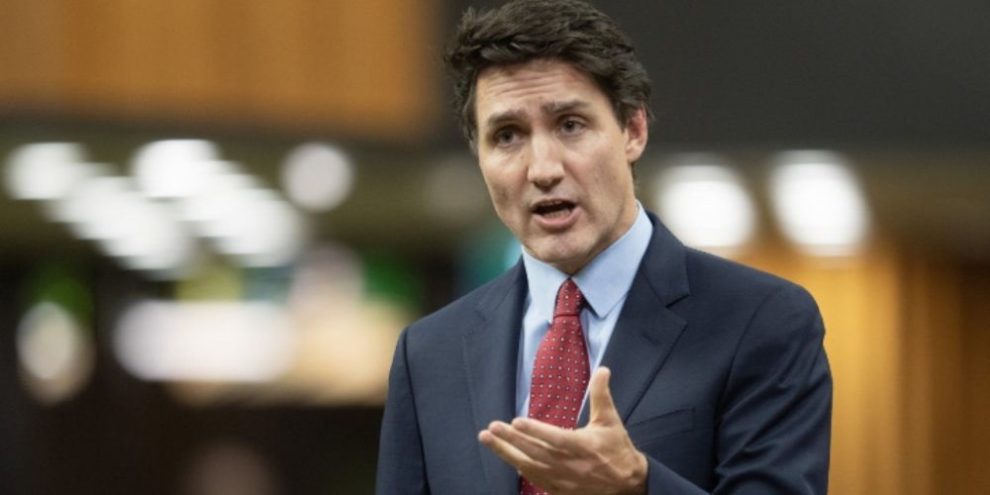
Industry Minister François-Philippe Champagne said Wednesday that he's confident all the premiers will get on board with a unified "Team Canada" approach to deal with Donald Trump's tariff threat.
His confidence comes despite signs of early cracks in that unity ahead of Prime Minister Justin Trudeau's emergency meeting with the premiers this afternoon.
Trump said in a social media post Monday night that he would impose 25 per cent tariffs until Canada and Mexico stop illegal border crossings and prevent drugs such as fentanyl from entering the U.S.
Alberta Premier Danielle Smith and Quebec Premier François Legault have both said his concerns about the U.S.-Canada border are legitimate and need to be addressed.
In Quebec City Wednesday morning, Legault said that Trudeau should present a plan to reassure the incoming president that Canada's border is secure and not try to deny that there's a problem.
Heading into a Liberal caucus meeting, Champagne said Ottawa is in agreement that it should "double down" on the border with more assets, and that he's asking the premiers to work with the federal government.
"My appeal to all the premiers: let's work together," he said. "The best way has always been to be united and to have the united front to face challenges when it comes to to the United States."
He added that the issues Trump raised "we are more than fine to work together" on.
Trudeau and the premiers are set to hold a virtual meeting at 5 p.m. with Deputy Prime Minister Chrystia Freeland, Public Safety and Intergovernmental Affairs Minister Dominic LeBlanc and Canada's ambassador to the United States, Kirsten Hillman.
The premiers had requested a meeting on Monday, before the U.S. president-elect threatened to impose tariffs on goods coming from Canada and Mexico.
The House of Commons held an emergency debate on the threat Tuesday night, after a request from the NDP and the Conservatives.
Freeland said during the debate that Canada is the largest export market for the United States, and that includes essentials such as oil, electricity and critical minerals.
"Canada is essential to the United States' domestic energy supply," she said.
Trump has pledged to cut American energy bills in half within 18 months, something that could be made harder if a 25 per cent premium is added to Canadian oil imports. In 2023, Canadian oil accounted for almost two-thirds of total U.S. oil imports and about one-fifth of the U.S. oil supply.
Freeland also said law enforcement and border agencies from both countries are working to disrupt fentanyl coming from countries such as China.
"Canada is absolutely committed to working with our American neighbours to ensure that their northern border is fully secured," she said.
Freeland has frequently pointed to the personal relationship she cultivated with Robert Lighthizer, Trump's previous point-man on tariffs, as a way to assure Canadians that Ottawa has a handle on things.
But the key cabinet position of U.S. trade representative is this time going to Jamieson Greer, Lighthizer's former chief of staff.
Champagne said even so, Lighthizer has been "fundamental in shaping the trade policy in the United States" and remains one of the key voices on trade for the incoming Trump administration.
Conservative Leader Pierre Poilievre said during the House debate that Trudeau should have been better prepared for this threat.
"President Trump had been saying that he would do this. He was elected three weeks ago. You'd think the prime minister would have been furiously planning, preparing, meeting with the premiers and talking about a counter plan during that time," he said.
"And now we learn that since the threat happened, he's come up with exactly one response: a Zoom call."
Poilievre said Canada needs a "real plan."
NDP MP Blake Desjarlais called for Canada to diversify its trade away from the United States.
He said Canada needs to show the U.S. and Trump "that our industries are not just the best industries and produce the best quality, but they are also desired elsewhere," such as in Europe, Asia, Australia and New Zealand.
This report by The Canadian Press was first published Nov. 27, 2024.

